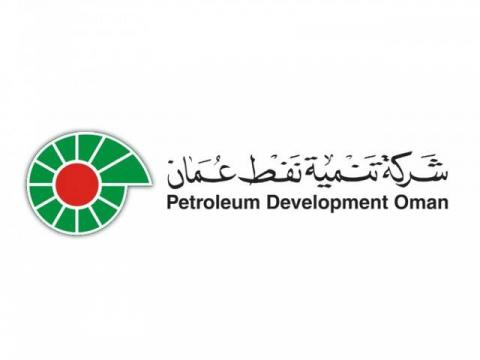
What does third-party risk management mean?
Eliminating third-party risk is impossible because of the complex web of relationships and business partners that a modern organisation needs if it is to function effectively. What matters is mitigating the risk, and knowing how to deal with it.
Third-party risk management (TPRM) is the process of identifying, assessing, and mitigating risks associated with outsourcing activities or business operations to third-party service providers, vendors, suppliers, or partners. This extends to ensuring that these external entities comply with regulatory requirements and do not introduce undue risk to your organisation's operations, data security, reputation, or financial health.
Key aspects of TPRM include:
- Identifying potential risks that third parties might pose, such as data breaches, compliance failures, financial instability, or operational disruptions.
- Evaluating the likelihood and impact of identified risks. This risk assessment may involve performing due diligence, assessing the third-party’s controls and processes, and understanding their risk profile.
- Implementing risk mitigation strategies to manage and reduce identified risks. This can include contractual agreements, regular audits, ongoing monitoring, and establishing contingency plans.
- Continuously monitoring and reviewing third-party performance and risk exposure, and periodically reviewing and updating risk management practices as needed.
- Compliance management, by ensuring that third parties adhere to relevant regulations, standards, and internal policies. This is of vital importance in industries with stringent regulatory requirements such as finance, healthcare, and data privacy.
- Managing the overall relationship with third parties, ensuring clear communication, and fostering collaboration to address and mitigate risks effectively.
- Safeguarding sensitive data with assessments of the information security measures taken by third parties.
Key themes

Increasing regulation

Third-party risk is not sector-specific, but is still closely associated with the financial sector because of its regulatory compliance requirements. A fundamental component is the ongoing monitoring and due diligence of outsourced service providers.

Operational factors

Organisations rely on third-party suppliers to deliver business-critical services. A supplier’s failure can damage its clients’ operations, financial performance and reputation.

Geopolitical instability

The Russia-Ukraine war and the coronavirus pandemic demonstrate the fragility of global supply chains, and highlight the risk of limited visibility over third parties’ operational exposure.

Technology and data

Legacy systems and a reliance on manual processes can result in inefficiency, human error, obsolete and inaccurate information, and bias.

Cyber security

Half of all successful cyber security breaches originate with third parties. Recent high-profile failures are evidence that threat actors are moving towards systemic breaches via companies’ third parties.

Environmental, social and governance

ESG is moving up on the board and key management’s agenda. Businesses are concerned with their own ESG ratings and that of their vendors and partners. It’s an essential component of a TPRM assessment.
Digitise and centralise
In today’s closely interconnected environment, what’s needed is the ability to identify, manage and mitigate the risks that come from the complex web of business relationships and global exposure. A spreadsheet and an email questionnaire will not provide your organisation with the information it needs.
An automated, data-driven approach and an efficient, streamlined workflow can give an organisation a complete overview of every part of its operating environment – allowing the board to scale safely and make better business decisions.


Want to learn how to manage third-party cyber risk in the supply chain?
Want to learn how to manage third-party cyber risk in the supply chain?
Third-party risk solutions tailored to every industry
No matter what industry or sector, third-party risk management (TPRM) is essential to safeguarding organisations and their clients. It also ensures that the companies they work with comply with legal, regulatory and industry standards and operate in line with their own ESG goals.

Powerful platform
Our Orbit Risk platform enables organisations to achieve a single, global risk perspective and to:
- perform due diligence;
- actively manage third-party relationships; and
- access global data feeds and cyber threat intelligence.

Trusted data
Our platform allows users to access proprietary and partner data on hundreds of markets and thousands of organisations globally, delivering deep insight for a range of uses.
Our experience means we know what information matters most to our clients.

Global coverage
We have experience monitoring more than 110 countries, and we have analysts in every major region of the world.
Clients can access our assessments or generate their own, using our flexible and intuitive best-in-class technology.
Orbit Risk
A suite of integrated risk, security, and due diligence tools. The solution for businesses who rely on global third parties to deliver essential support and services.


Orbit Intelligence
Centralise your monitoring and reporting, access Thomas Murray risk assessments and third-party data feeds.
Orbit Diligence
Automate your due diligence questionnaires (DDQ) and request for information (RFI) processes for a wide range of use cases, and access a library of off-the-shelf questionnaires and risk frameworks.




Orbit Security
Security ratings for enhanced attack surface management and third-party risk assessments. Monitor for breaches and vulnerabilities that could be exploited by threat actors.
We safeguard clients and their communities

Northern Trust
“Thomas Murray proporciona a Northern Trust una variedad de productos, servicios y tecnología de solicitud de propuesta para la recolección de propuestas, lo que brinda una solución eficiente y rentable que libera a nuestros gerentes bancarios para que se concentren en actividades de mayor valor.”

Petroleum Development Oman Pension Fund
“Thomas Murray ha sido un aliado valioso en el proceso de selección de nuestro custodio para Petroleum Development Oman Pension Fund.”

ATHEX
“Thomas Murray ahora juega un papel clave para ayudarnos a detectar y remediar problemas en nuestra postura de seguridad, de la misma manera que a cuantificar, para nuestros directores y clientes, el rendimiento de seguridad de ATHEX.”
Insights

El papel de la banca corresponsal en la lucha contra el delito financiero
La banca corresponsal es una forma de relación entre dos bancos.

La Kuwait Clearing Company (Maqasa) y Thomas Murray firmaron hoy un Memorando de Entendimiento (MoU) para profundizar la colaboración en torno a la ciberseguridad
La Kuwait Clearing Company (Maqasa) y Thomas Murray firmaron hoy un Memorando de Entendimiento (MoU).

El papel crucial de la respuesta a incidentes en la protección contra los ciberataques
La respuesta a incidentes es un enfoque sistemático para gestionar y mitigar las secuelas de un ciberataque.

Planes de respuesta a incidentes: Comprendiendo los equipos y herramientas esenciales
Los planes de respuesta a incidentes (IRPs) son un componente vital para la gestión y mitigación efectiva de incidentes de ciberseguridad.
Contact an expert



